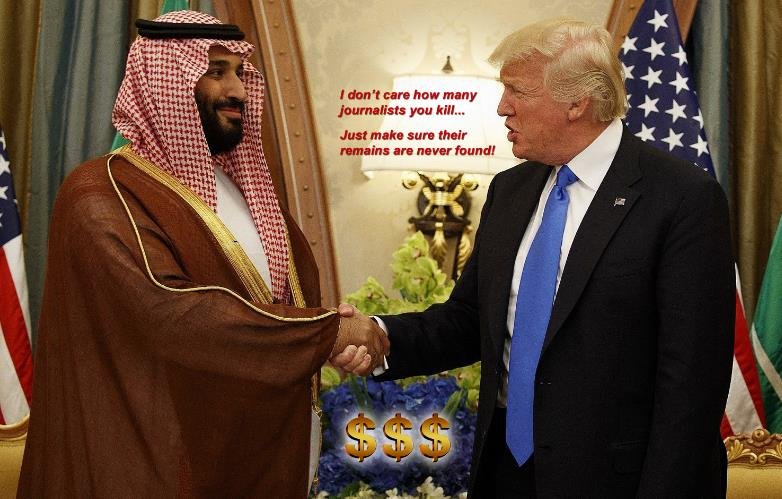Former President Donald Trump, who was ordered to pay more than $350 million in a civil fraud case in New York, could try to ask his allies in Saudi Arabia to bail him out, according to a reporter who has covered his finances.
Trump was found liable for fraud by Justice Arthur Engoron on Friday, in a case brought by New York Attorney General Letitia James. The case alleged that Trump and his family business, the Trump Organization, had inflated the value of their assets to obtain loans and tax benefits.
Engoron ruled that Trump had to pay $287 million in damages, plus interest and penalties, which could amount to more than $350 million in total. He also ordered Trump to post a bond or a letter of credit to secure the payment, pending an appeal.

The ruling was a major blow to Trump, who has been struggling with debt and legal troubles since leaving office. According to Forbes, Trump’s net worth has dropped from $3.1 billion in 2019 to $2.5 billion in 2021, partly due to the impact of the Covid-19 pandemic on his businesses. He also owes more than $400 million in loans that are due in the next few years, some of which are personally guaranteed by him.
Trump could ask the Saudis for help
Trump, who has been known for his unconventional and controversial ways of raising money, could resort to asking his friends in Saudi Arabia to help him pay his legal debt, according to Andrea Bernstein, a reporter and author who has written a book on Trump’s finances, called “American Oligarchs”.
Bernstein said on MSNBC on Friday that Trump could use a “legal wrinkle” to get around the restrictions that prevent him from doing business with banks that operate in New York, where the judgment was issued. She said that Trump could ask the Saudis, who have been his loyal supporters and customers, to pay him in cash or in kind.
“He could say to the Saudis, ‘Look, I need some money. Can you buy some apartments from me? Can you give me some cash?’” Bernstein said. “He has a lot of flexibility in how he raises money.”
Trump has had a close relationship with Saudi Arabia, especially with its de facto ruler, Crown Prince Mohammed bin Salman, who is widely accused of ordering the murder of journalist Jamal Khashoggi in 2018. Trump has defended the crown prince and shielded him from sanctions and criticism. He has also sold billions of dollars worth of weapons and military equipment to Saudi Arabia, despite the kingdom’s involvement in the war in Yemen and its human rights violations.
Trump has also benefited from the Saudi patronage of his businesses, both before and after he became president. According to The Washington Post, the Saudis have spent millions of dollars at Trump’s hotels, golf courses and other properties, sometimes booking entire floors or buying multiple units. Trump himself has boasted about his ties with the Saudis and their spending habits.
“Saudi Arabia, I get along with all of them. They buy apartments from me. They spend $40 million, $50 million,” Trump said at a campaign rally in 2015. “Am I supposed to dislike them? I like them very much.”
The implications of Trump’s possible move
If Trump were to ask the Saudis for help to pay his legal debt, it could raise ethical and legal questions, as well as political and diplomatic implications.
It could be seen as a conflict of interest and a violation of the emoluments clause of the Constitution, which prohibits the president from receiving any gifts or payments from foreign governments or officials. Trump has already faced several lawsuits and investigations over his alleged violations of this clause, which he has denied and dismissed.
It could also be seen as a sign of desperation and weakness, as well as a betrayal of the American interests and values, by Trump, who has claimed to be a successful and patriotic businessman and leader. It could damage his reputation and credibility, as well as his chances of running for office again in 2024.
It could also affect the US-Saudi relations, which have been strained under President Joe Biden, who has vowed to reassess the partnership and to hold the Saudis accountable for their actions. It could undermine the US efforts to promote democracy and human rights in the region and the world.
